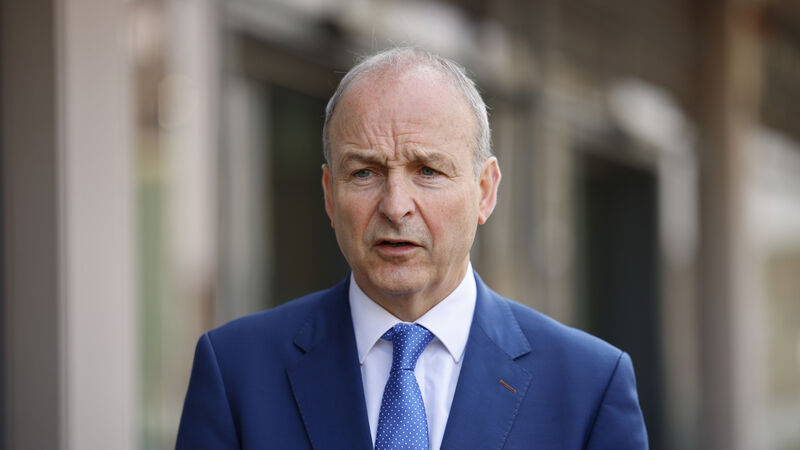Martin: ‘No excuse’ for Cork water supply issues

Taoiseach Micheál Martin has said Uisce Éireann has “no excuse” for high levels of manganese
Taoiseach Micheál Martin has said Uisce Éireann has “no excuse” for high levels of manganese — up to eight times the maximum levels permitted in EU law — found recently in Cork city’s public drinking water supplies.
Mr Martin told The Echo that water is a public health issue, and the question of water quality “simply has to be dealt with”.
Manganese is a naturally occurring mineral which can, at high levels, be extremely harmful, potentially affecting brain development in children, and in adults it can also cause symptoms similar to Parkinson’s disease.
The EU Drinking Water (2023) Regulations allow a maximum of 50 microgrammes per litre (µg/L).
In one week in September, manganese levels of 428µg/L were recorded at Friars Walk, more than eight times the EU limit, as shown in data released following a Freedom of Information query by Sinn Féin TD for Cork North Central, Thomas Gould.
That same week, beginning September 22, levels of 271µg/L, more than five times the EU limit, were recorded at College Rd, while levels of 100µg/L were recorded at Capwell and 108µg/L at Deerpark, both of which were twice the EU limit.
Between January and the end of September this year, two-thirds of all tests carried out in the Ballyhooley Rd B area showed manganese levels above EU maximums, while half of those carried out in the Ballyhooley Rd A area also failed to meet regulations.
In February, the HSE expressed alarm at high levels of manganese in drinking water in Cork city, telling Uisce Éireann that if such exposure was ongoing, its immediate recommendation would be a ‘Do Not Consume’ notice.
In March, manganese levels of 193µg/L were recorded at Richmond Tce, off Gardiner’s Hill, almost four times the EU maximum, and when The Echo published those figures in September, Mr Martin described the situation as “very serious”.
“It’s quite shocking that the levels would be that high, and if known about, the public should be made aware of it, of course,” he said at the time.
Asked about the latest figures, Mr Martin said he had met recently with both Uisce Éireann and the Environmental Protection Agency (EPA) and, he said, “there are issues there”.
“The EPA have raised issues, and I’m not entirely happy with the responses, there are issues in particular sites and locations,” said Mr Martin.
“This speaks to governance, proper governance and management in wastewater treatment plants and in water supply plants, and there can be no excuse for that, and that’s my view on that.”
The Taoiseach said he had also spoken with housing minister James Browne, who has responsibility for Uisce Éireann.
“Water is about public health, it’s a public health issue,” said Mr Martin. “You know, if you take other plants and other sectors like pharmacy, these issues don’t arise, can’t arise, and it should not arise in the context of water.
“Now, what Uisce Éireann will say, in its defence, is that the transition from local authorities to the national body has been slow and difficult, and all of that, but to me, public health is the bottom line here, and this simply has to be dealt with.”
A spokesperson for Uisce Éireann said: “In 2025, the vast majority of samples taken across the network are compliant: 94% for manganese, 96% for iron, and 94% for colour. Following all exceedances at customer properties, including those in September… an investigation is carried out, reactive flushing is typically undertaken, and follow-up sampling arranged. For the locations referenced, multiple compliant sample results have been returned since the reactive flushing work was carried out.”










 App?
App?


